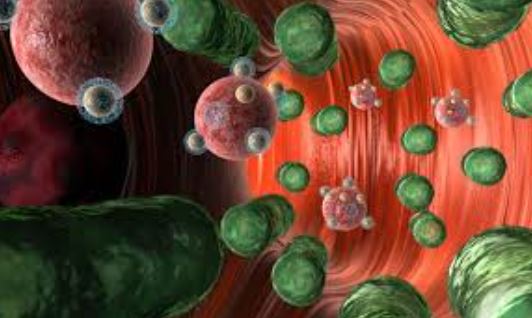Relation between Agni and Gut Microbiota
DOI:
https://doi.org/10.21760/jaims.10.2.16Keywords:
Agni, Gut microbiota, Gut health, Gut axisAbstract
Agni is the principal component of the living body. It is responsible for all kinds of activities happening inside the body; therefore, Ayurveda considers that Dehagni is the cause of life, complexion, strength, health, and nourishment and also responsible for the causation of disease. Gut microbiota, or gut flora, are the microorganisms, including bacteria, archaea, fungi, and viruses, that live in the digestive tract. Collectively, they create the network system with all organs called as gut axis, which has tremendous potential to influence human physiology in terms of health and disease. Disturbance in Agni due to improper diet, lifestyle, and stress contributes to the development of dysbiosis, leading to various organ system diseases. Ashtanaga Hridaya has quoted “Sarve Rogau Api Mandagnau."How Agni is responsible for manifestation of all diseases can be understood by analysing the relationship between Agni and the gut microbiota. Gut microbiota communicates with every organ system in the body via the gut axis; impairment in the Agni has a direct effect over gut microbiota, leading to gut dysbiosis, and that which disturbs the gut axis leads to disease manifestations. Here, an attempt is made to understand the relationship between Agni and gut microbiota.
Downloads
References
Psychology Today Canada. 8 surprising facts about your gut microbiome [Internet]. Psychology Today; 2021 Jun [cited 2024 May 24]. Available from: https://www.psychologytoday.com/CA/BLOG/URBAN-SURVIVAL/202106/8-SURPRISING-FACTS-ABOUT-YOUR-GUT-MICROBIOME.
Agnivesha. Charaka. The Charaka Samhita (Ayurveda - Dipika's Ayushi Hindi - Commentary). Chapter 15, Verse 4. 2nd ed. Kushawaha HCS, editor. Varanasi: Chaukhambha Orientalia; 2012. p. 376.
National Institute of Environmental Health Sciences. Microbiome [Internet]. National Institute of Environmental Health Sciences; [cited 2024 May 24]. Available from: https://www.niehs.nih.gov/health/topics/science/microbiome#:~:text=The%20microbiome%20is%20the%20collection.
Agnivesha. Charaka. The Charaka Samhita (Ayurveda - Dipika's Ayushi Hindi - Commentary). Chapter 15, Verses 3-4. 2nd ed. Kushawaha HCS, editor. Varanasi: Chaukhambha Orientalia; 2012. p. 376.
Arneth BM. Gut–brain axis biochemical signaling from the gastrointestinal tract to the central nervous system: gut dysbiosis and altered brain function. Postgrad Med J. 2018 Aug;94(1114):446–52. doi: 10.1136/postgradmedj-2017-135424.
Intili G, Paladino L, Rappa F, Alberti G, Plicato A, Calabrò F, Fucarino A, Cappello F, Bucchieri F, Tomasello G, et al. From dysbiosis to neurodegenerative diseases through different communication pathways: an overview. Biology. 2023;12(1):195. doi: 10.3390/biology12010195.
Mandagni is the root cause for all diseases according to Ayurvedic & allopathic views [Internet]. Scribd; [cited 2024 May 24]. Available from: https://www.scribd.com/document/522531727/Agnimandya.















